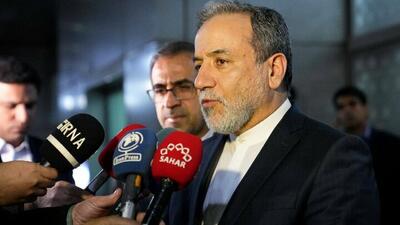
| Published June 27, 2025
🇮🇷 Iran Denies Planned Talks with U.S.
Iran’s Foreign Minister, Abbas Araghchi, has firmly rejected President Trump’s claims that Tehran and Washington would meet “next week.” He confirmed on state TV that no meetings are scheduled, adding that Iran is still evaluating whether engagement with the U.S. would serve its national interests, particularly after five aborted negotiation rounds disrupted by military strikes.
🛑 Military Strikes Derailing Diplomacy
Araghchi stressed that recent U.S.-led airstrikes on Iran’s nuclear facilities—Fordow, Natanz, and Isfahan—have “complicated” and “made it more difficult” to resume talk. The strikes inflicted significant damage, including rendering centrifuges inoperable, according to the IAEA and CIA.
⏳ How Much Did the Strikes Actually Set Back Iran?
There’s a sharp divide in assessments:
-
Trump declared the sites were “completely obliterated,” saying the nuclear program was set back “decades”.
-
U.S. intelligence (DIA) now suggests the damage likely only pushed Iran back a few months—uranium stockpiles and centrifuges remain mostly intact.
-
Still, Iran reportedly moved enriched uranium out of targeted sites before the strikes.
Overall, analysts warn that the underground infrastructure and technical expertise remain unscathed, enabling a potential recovery.
⚠️ Escalation & Strategic Impacts
-
The strikes risk undermining the Nuclear Non‑Proliferation Treaty (NPT). With destroyed trust, Iran may accelerate weaponization or withdraw from oversight.
-
The attack also triggered Iranian missile retaliation (targeting Israel and potentially U.S. nodes in Qatar), and Parliament moved to suspend IAEA cooperation.
-
Some experts argue that military action only delays nuclear progress, and that lasting rollback requires diplomacy like the 2015 deal.
🕊️ Diplomacy Amid the Rubble
-
Even as U.S.–Iran** talks remain staunched**, Iran is engaging in European-led discussions (E3: UK, France, Germany) that began June 20; Tehran maintains diplomatic engagement is possible—but not yet with the U.S.
-
Trump claimed negotiations might restart “next week” and discussed zero-enrichment demands and sanctions relief in a preliminary proposal. But Iran insists on recovering from strikes before even considering U.S. engagement.
 Implications
Implications
🧨 1. Diplomatic Deadlock Deepens
-
No trust: Iran sees U.S. strikes as a betrayal, making any return to bilateral talks politically toxic in Tehran.
-
EU as mediator: Europe (E3: UK, France, Germany) may become the only viable bridge for dialogue.
-
Trump’s credibility hit: His claim of “talks next week” is publicly refuted, weakening the optics of progress.
🛠️ 2. Limited Effect of Military Strikes
-
Short-term disruption only: Despite bomb damage, core nuclear assets—knowledge, uranium stockpile, and key infrastructure—remain.
-
Possibility of rebuilding: Iran can restore much of its program within months, not years.
-
Iran gets more secretive: Tehran may shift enrichment to deeper, less detectable facilities.
📉 3. Collapse of Non-Proliferation Norms
-
NPT at risk: Iran’s parliament is pushing to suspend IAEA inspections, possibly signaling a break from treaty obligations.
-
Dangerous precedent: Other nations may see military action as a substitute for diplomacy.
🎯 4. Risk of Escalation and Regional War
-
Retaliatory attacks: Iran’s missile response (allegedly targeting Israeli and U.S. assets) heightens the threat of a broader conflict.
-
Proxy activation: Iran-backed groups in Syria, Lebanon, and Iraq may respond with asymmetric warfare.
🔍 5. Strategic Setback for the U.S.
-
No lasting nuclear rollback: Strikes offer little strategic gain if Iran resumes enrichment soon.
-
Undermines moderates: Inside Iran, hardliners gain ground by pointing to U.S. aggression.
-
Weakens diplomacy: Future negotiations will require greater concessions just to return to the table.
🕊️ 6. Window for Multilateral Talks Remains
-
Iran still talking to Europe: A slim diplomatic path exists through the EU, possibly with China or Russia’s support.
-
No preconditions yet: Iran hasn’t closed the door completely but wants tangible U.S. restraint first.
💬 Overall Takeaway:
Iran’s outright denial of talks with the U.S. underscores a critical breakdown in trust after recent American airstrikes on its nuclear facilities. While the Biden-era approach favored negotiation, the Trump administration’s renewed use of military force has complicated diplomacy, hardened Iranian positions, and risked long-term damage to nuclear non-proliferation efforts. Despite claims of strategic success, intelligence suggests the strikes delivered only short-term disruption—not disarmament.
With tensions high and diplomacy in limbo, the path forward hinges on whether Europe can mediate de-escalation and whether Washington is willing to pivot from confrontation back to dialogue. Until then, the region stands on a knife’s edge, and the nuclear question remains dangerously unresolved.





Be the first to comment